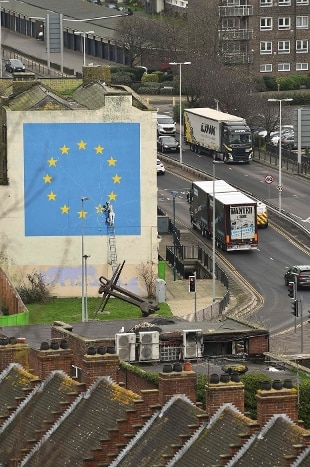- Brexit, 'disorder' to the Municipalities
- Brexit: even Lord say no to the "no deal". New defeat for Johnson who now aims for the elections
- Brexit reopens Parliament and aims to postpone it. Johnson loses the majority
Share
10 September 2019After the request for early elections and the defeat suffered last night in the House of Commons with a negative vote, the UK's head of government Boris Johnson reiterates his desire to find a new agreement with the European Union in view of the scheduled Brexit for October 31st. "I will try to get an agreement to avoid the no deal" and will have to do it by the European summit scheduled for 17 and 18 October in Brussels.In the morning, Johnson convened the Council of Ministers to decide how to act to avoid an exit without agreements with the European Union, while on the same day he will meet the leader of the Northern Irish Unionist Party Dup, a government ally. They will talk about the backstop, the borderline between Ulster and Eire, a crucial point for Brexit. For the EU, however, the border between Ireland and Northern Ireland is not renegotiable.
From July 24, the day on which Boris Johnson became prime minister to replace outgoing Theresa May, the UK risked experiencing a parliamentary blockade for five weeks. Queen Elizabeth a few days ago approved Boris Johnson's request for the suspension until October 14, confirmed by the judges of the British High Court in London and now in the hands of the Supreme Court for a final examination. This choice by Johnson led to strikes, petitions and protests across the country.
In recent days, 21 Tory parliamentarians have been expelled, the Labor minister, Amber Rudd, has resigned from the government and the Conservative party and House speaker John Bercow announced to Parliament that if there are early elections, he will immediately resign the resignation. Harriet Harman, Labor exponent, if elected as successor to speaker of the House, said it will be "strictly impartial".
Brexit on the European front
The new president of the European Commission, Ursula von der Leyen, the first woman to hold this office, said today: "A withdrawal without agreement (hard Brexit) is not in the interest of either the EU or the United Kingdom, it is in the everyone's interest in having an orderly Brexit ". From Brussels he continued on the subject: "If the United Kingdom were to request a further extension, we will grant it to him". If there is a postponement and Article 50 of the Lisbon Treaty was extended, then the United Kingdom should choose a new commissioner and the EU's reasoning would again be on 28 countries, just as European parliamentarians would remain 751, without the redistribution of 27 seats out of the 73 in the United Kingdom (46 would be frozen in the event of exit). "The preparations for an exit without agreement have been made" added the elected president, stating that she will speak to the negotiator for Brexit Michel Barnier for "a possible extension of his mandate".
According to The Guardian newspaper, British Prime Minister Boris Johnson will soon have new meetings with EU leaders. Probably next week he will travel to Brussels and, according to a spokesman, Johnson's principal Brexit adviser, David Frost, will be in Belgium tomorrow and Thursday for talks. Mark Carney, governor of the Bank of England, also spoke, explaining that "the British financial system is ready for Brexit and a possible hard exit would lead to the slowdown of the British economy and the increase in inflation, currently under control".

